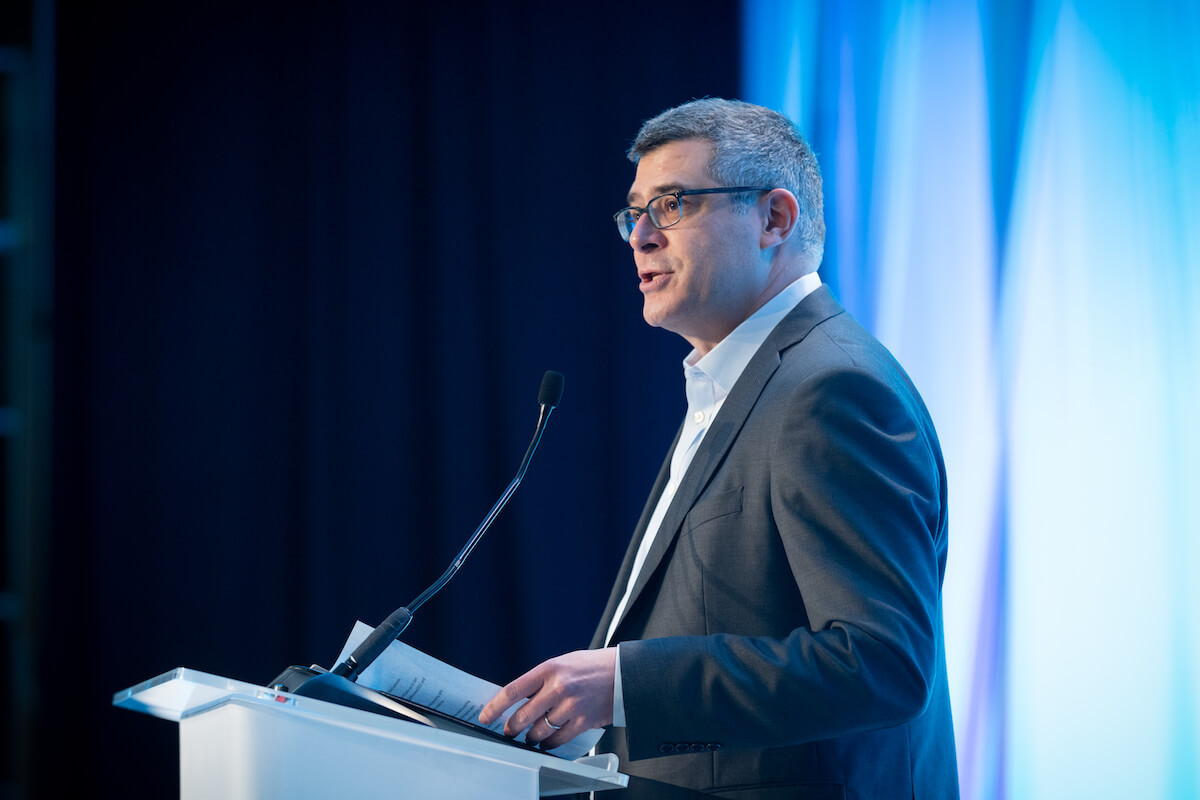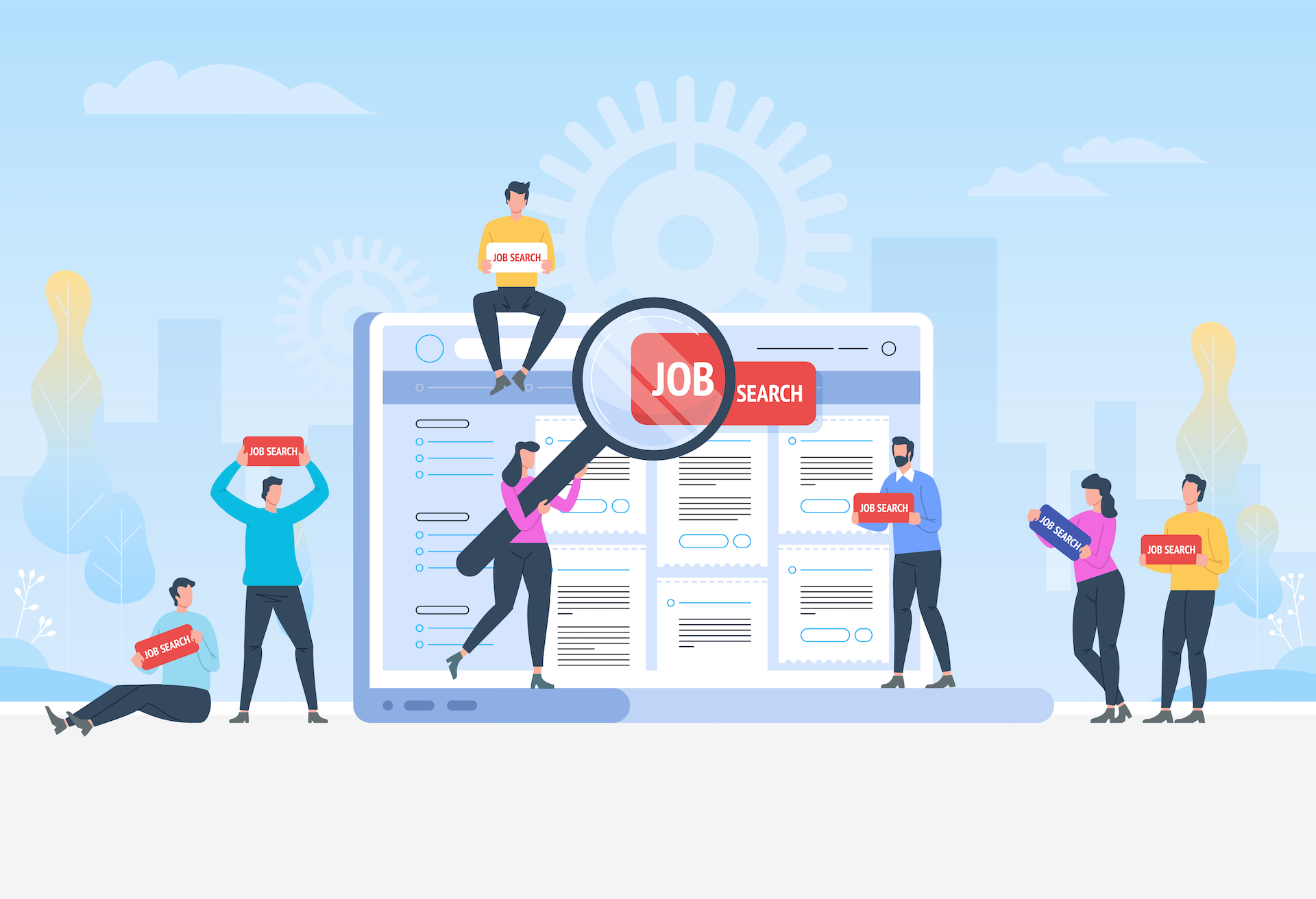Greetings, Agents of Impact!
Featured Podcast: Institutional Shift
Investment trends to watch in the second half of 2019. Follow the talent. The first wave of talent in impact investing came largely from social enterprises or non-governmental organizations. Now, “Almost every firm is reconstituting those groups and bringing in seasoned mainstream investment professionals,” says Equilibrium Capital’s Dave Chen, co-host of ImpactAlpha’s occasional podcast series, “Institutional Shift.” In the latest episode, David Bank asked Chen to update forecasts from January’s 2019 look-ahead. That podcast predicted the arrival of new ‘sustainable infrastructure’ funds from major asset managers like Ares Management Corp. ($137 billion in assets under management) and Blackstone ($512 billion AUM). Lo and behold, Blackstone last month announced it is building an impact strategy to advance health, financial access, sustainable communities and green technologies, while Ares’ Climate Infrastructure Partners is targeting greenhouse-gas emissions and natural-resource use.
Among other second-half trends to watch: Climate-change investing (by next year, Chen says, expect neon banners in Times Square offering ways to “Invest in Climate Change”). Increased focus on plastics (“We’ll see some innovative financial instruments that incentivize the counter-use of plastics”). And financial-services product development (“The days of the white paper are long gone”). “Now that we understand the markets can be used in some cases to solve these planetary issues, we’re going to see the next wave of innovation from a financial instruments standpoint,” he says. “It gives me great optimism that firms that are household names are paying attention to it.”
Read on and listen in to, “Institutional Shift: Investment trends to watch in the second half of 2019 (podcast),” on ImpactAlpha.
Dealflow: Follow the Money
Sunbit raises $26 million to provide loans for unexpected expenses. The majority of Americans live paycheck to paycheck. When emergency expenses arise, many are forced to turn to predatory payday loans. Venture capital firm Zeev Ventures backed Los Angeles-based Sunbit’s alternative: lower-cost short-term loans for “non-discretionary” expenses, like car repairs, textbooks, or pets’ vets costs. Sunbit partners with merchants to provide point-of-sale financing in minutes with nothing more than a customer’s driver’s license, phone number and email address. Sunbit homes in on behavioral economics and customers’ willingness to pay, Sunbit’s founder Arad Levertov told ImpactAlpha. “The majority of people still need to do non-discretionary services in brick and mortar shops,” Levertov said. Financial services in such locations “are stuck in the 1980s.” Get the full story.
Morgan Stanley Capital Partners acquires Impact Fitness from Bain Capital and Bridges. The string of low-cost fitness centers, the first investment of the Bain Capital Double Impact Fund, is now the $390 million fund’s first exit. Morgan Stanley Capital Partners acquired the stakes of Bain and Bridges Fund Management, marking the first exit as well for Bridges’ U.S. Sustainable Growth Fund. Impact Fitness, a franchisee of Planet Fitness, provides affordable gym access in 29 underserved communities in Michigan, Indiana, British Columbia, and Ontario. Bain and Bridges sought to increase first-time gym users and boost usage per month. “We invested with the thesis of finding a way to grow and scale and embed the impact approach into the Planet Fitness franchisee, and by extension into the franchisor,” Bridges’ Brian Trelstad told ImpactAlpha. Said Morgan Stanley Capital Partners’ Aaron Sack: “Impact has differentiated itself through its mission-driven culture,” he said. More.
Spacemaker raises €22 million for sustainable urban development. Surging urbanization “makes it necessary to build higher, denser and faster than before—while also providing high living quality and sustainable urban environments,” says Oslo-based Spacemaker. The company’s artificial intelligence-based software helps developers adjust construction plans to account for sunlight, green energy, local noise and other factors. It also facilitates planning between architects, engineers and city agencies. The company raised €22 million ($25 million), led by London-based investment firm Atomico and Stockholm-based Northzone. European property developers and real estate tech investors also backed the round. Check it out.
Signals: Ahead of the Curve
A tool for assessing the potential climate impact of startup ventures. Measuring the current impact of new technology is hard. Measuring future impact is even harder. Investors looking for climate solutions are keen to know which companies hold the most promise. Cambridge-based PRIME Coalition, which mobilizes philanthropic and commercial capital for early stage climate solutions, last year developed a method for assessing early-stage ventures’ potential to reduce future carbon emissions. Now PRIME is open-sourcing its “Emissions Reduction Potential” and making it available to any early stage investor or venture.
- Streamlined and standardized. The software, known as CRANE, for “Carbon Reduction Assessment of New Enterprises,” will reduce cost, labor and time for calculating climate impact. Standardized, comparable results will be useful in both due diligence and ongoing management of climate-related investments, says PRIME’s Sarah Kearney.
- Track record. PRIME has syndicated investments for 13 early-stage climate ventures, each with the potential to eliminate more than a gigaton of CO2 emissions by 2050. PRIME has mobilized about $60 million from 95 philanthropies, including 42 first-time philanthropic investors and 30 first-time climate investors. One of its earliest investees, Quidnet, attracted the first investment from the billionaire-backed Breakthrough Energy Ventures.
- CRANE for X. Metric sets like IRIS+ identify metrics for past and current impact. Kearney says CRANE fills a gap for tools to make data-driven, future-looking estimates. The software could be replicated for any vertical with forward- looking impact, like clean water or sustainable agriculture.
- Share this post.
Agents of Impact: Follow the Talent
Coworking network Launch Pad opens a location in Stockton, Calif. (see, “A launch pad for businesses that can make Opportunity Zones thrive”)… Open Society Foundations is hiring a deputy director of impact investing in London… Upstart Co-Lab is looking for a senior associate… New England Impact Investing Initiative is hosting “Donor Advised Funds + Impact Investing,” Tuesday, June 25.
— June 12, 2019.











